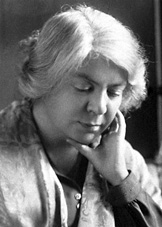Brought up as a servant in the austere household of an uncle, Marianna is now a woman of property. But at thirty, she knows little of life. For others in the town of Nuoro and its surrounding hill farms, Sardinia is a harsh and unforgiving place. When she meets a former companion in service, now forced into banditry to support his family, her calm existence is turned upside down. The defining moment of her life has come. Does Marianna love for Simone Sole triumph over her common sense, social convention and what is expected of her by her family? Grazia Deledda explores the layers of temptation and doubt in a novel of Sardinian life coloured with her own intimate knowledge of its beauties and dangers.
Hinweis: Dieser Artikel kann nur an eine deutsche Lieferadresse ausgeliefert werden.
Hinweis: Dieser Artikel kann nur an eine deutsche Lieferadresse ausgeliefert werden.









